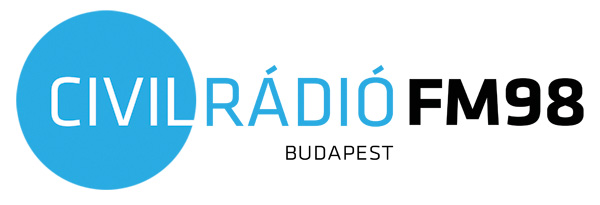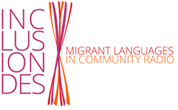Civil Radio
 Civil Radio broadcasts programs on the life of common city squares where morning and evening walkers, homeless people, bus drivers and street musicians can be heard. We have a program that focuses on different districts and quarters of Budapest through outdoor recordings which are then brought back to the studio for editing. While preparing it, we visit these districts to find interesting topics, communities and organisations. It is very important for us to focus on local matters, events and values. Mainly, we would like to introduce those people who are not famous or well-known, but whose everyday activities are good examples of solidarity, appreciation, identification with others and are involved in the protection of local values.
Civil Radio broadcasts programs on the life of common city squares where morning and evening walkers, homeless people, bus drivers and street musicians can be heard. We have a program that focuses on different districts and quarters of Budapest through outdoor recordings which are then brought back to the studio for editing. While preparing it, we visit these districts to find interesting topics, communities and organisations. It is very important for us to focus on local matters, events and values. Mainly, we would like to introduce those people who are not famous or well-known, but whose everyday activities are good examples of solidarity, appreciation, identification with others and are involved in the protection of local values.
Civil Radio highlights the social life and civic associations of the districts, analyses the contacts between local governments and civic organisations, and reports on different NGO-support systems developed by different democratic governments. We discuss the local traditions and what measures are being taken to protect them. We are always listening to other radio stations, perusing local newspapers and watching cable-television networks to see if we can contribute or expand on any local story.
Programs which give an insight into the evening life of Budapest have become an important part of our broadcasting format. We have organised broadcasts from locations such as dance halls, concerts, alternative theatre events and live music festivals. We have had street interviews, and, occasionally, have called up street telephone boothes, at random, casually asking whoever answers to give us a report on the life of the capital. By popular request, we have re-tooled our “Nostalgia Budapest” program where, among other things, we talk to well known town historians. The topics we cover on this program include: the civic associations and social life of the 1900’s, origin of the names of city streets and squares, restaurants of the capital, local newspapers before the second World War, the town grove, baths, street music, celebrations and the festive days of civic life.
Our musical programing is a very important part of the evening format. We try to avoid playing the current musical clichés and top songs from the pop charts. Instead, we sophisticated a blend of contemporary jazz, progressive rock, blues, new age, ethno, folk, world and classical music. It’s always a pleasure to invite talented new Hungarian bands and musicians to Civil Radio so that they have an opportunity to play their music and showcase their talent to a receptive audience.
Civil organisations are generally inexperienced, in theory as well as in practice, on how NGOs function and are managed. Civil Radio frequently organises training courses which help civil organisations to engage in social communication, and represent their interests in the media. The training is based on the experiences and contacts of Civil Radio. The program is titled “How can we make news about ourselves?”.

